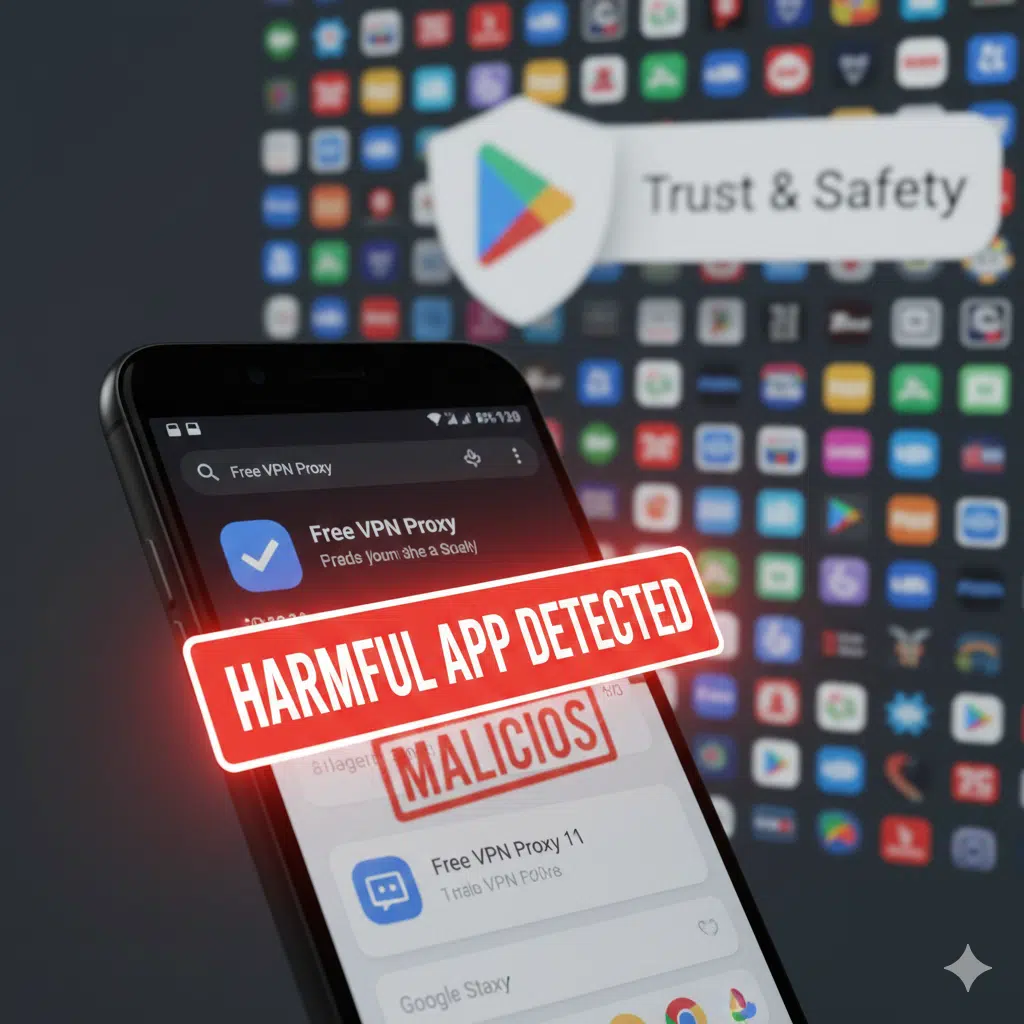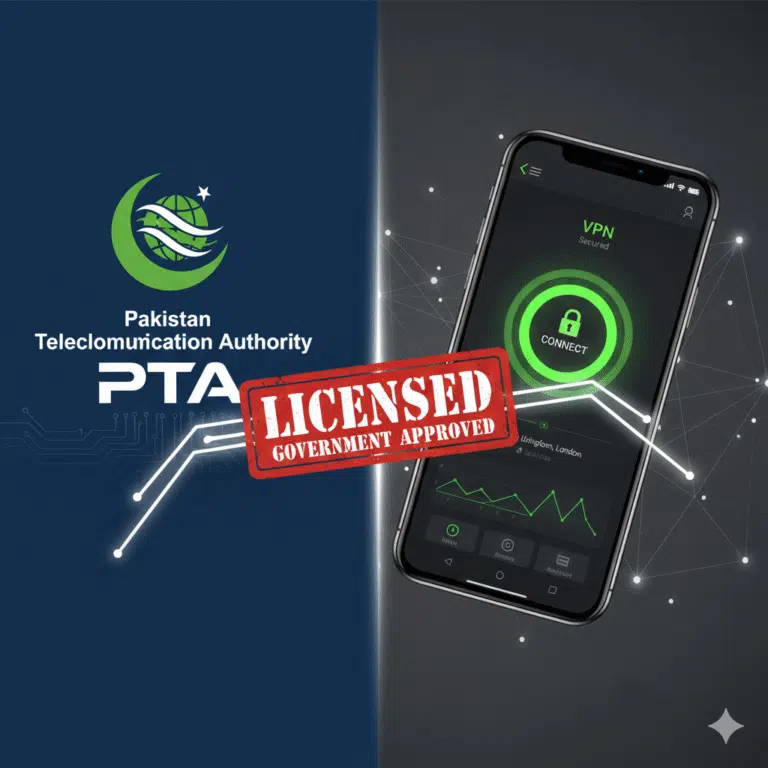Google’s November 2025 fraud advisory rings a loud alarm for anyone who installs VPN apps on phones or desktops: fake VPN apps are increasingly being used as delivery vehicles for malware, info-stealers, and remote access tools. What looks like a privacy tool can instead expose credentials, banking data, and full device access to attackers — turning a supposed protector into an active threat(VPN-aided).
What Google actually said
In its Fraud & Scams Advisory, Google’s Trust & Safety teams highlighted recent scam trends and specifically called out malicious VPNs and deceptive privacy apps as a growing problem. The advisory explains how threat actors impersonate trusted VPN brands, inflate credibility with fake reviews and aggressive ad campaigns, and push downloads from third-party sites or sideloaded packages. Google recommends using Play Protect, installing only from official stores, and verifying app authenticity.
How fake VPN apps operate
Malicious VPN apps use a few repeatable techniques to look legitimate while doing harm:
Impersonation: Copying logos, names, and descriptions of well-known VPN brands to trick users.
Excessive permissions: Requesting unrelated access (contacts, storage, SMS) that enables data theft.
Bundled malware: Delivering info-stealers, banking trojans, or remote access tools after install.
Silent surveillance: Running background services that capture browsing or credential data.
Security reporters and researchers have documented multiple campaigns where apps marketed as “free VPNs” were found to steal data or snapshot user activity — demonstrating that the threat is not hypothetical.
Real examples and scope
Media outlets covering Google’s advisory have pointed to concrete incidents: Chrome and Play Store extensions and apps purporting to be “Free VPN” or “Unlimited VPN” have been caught taking screenshots, changing proxy settings, or exfiltrating user data to attacker-controlled servers. These cases show the attackers will pivot across platforms (mobile apps, browser extensions, sideloaded APKs) to reach victims.
Why trusting the store isn’t enough
Google has improved vetting (e.g., verification badges and MASA/independent review programs for higher-risk apps), but attackers still exploit gaps — especially with new accounts, cloned listings, or aggressive paid advertising that routes users off-store. Google’s advisory therefore stresses user caution alongside platform improvements. For users, a verified badge helps but is not a guarantee if other entry points (third-party sites, shared APKs) are used.
Expert guidance — what you should do now
Practical steps recommended by Google and security outlets:
Install only from official stores and check the developer name and reviews — beware new accounts with inflated ratings.
Use Play Protect and keep OS and apps up to date to benefit from Google’s automated scanning.
Limit permissions — a VPN app only needs network/tunneling permissions; anything asking for SMS, contacts, or camera is suspect.
Prefer reputable, audited VPN providers (look for independent audits and clear privacy policies).
Remove and scan: If you installed a VPN from a non-trusted source, uninstall it and run a malware scan; change passwords for sensitive accounts accessed while the app was installed.
Comparison: free vs. paid VPNs (brief)
Free VPNs often fund their service by collecting and selling telemetry or inserting ads — a business model that can be abused or hijacked. Paid, audited VPNs tend to offer clearer privacy commitments (no-logs policies, independent audits) and stronger accountability if something goes wrong. That said, even well-known names should be checked for authentic listings and valid security audits.
Conclusion
Google’s advisory is a timely reminder: not every VPN app seeking network access is protecting you. As demand for privacy tools grows, so does the incentive for scammers to weaponize the “VPN” label. Use official stores, check for verification and independent audits, minimize permissions, and treat unusually generous free offers with skepticism. Vigilance — not just trust — is the best defense right now.


